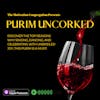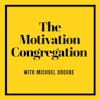Beis Medrash of Wall Street (Weekly Parsha)
Imagine every aspect of your life as a passuk in the Torah, even the hustle of your livelihood, from the office to the marketplace. That's the provocative idea we explore in this episode, inspired by the profound statement made by Rabbi Yosef Elephant Shlita suggesting that Moshiach is a Baal Habos. Ride along with us as we delve into the story of Parshas Matos-Masei, where the Jewish people are charged to wage war against the Midyanim and share the spoils.
We then navigate this episode's narrative, drawing parallels between the distribution of war spoils and our everyday grind, asserting that each dollar earned is a sacred sugya, a topic of Talmudic discussion. We find inspiration in the European Jews who wore the same Jewish cap in the office and in the Beis Medrash, underlining the notion that everything in a Jew's life, including Parnasa (livelihood), is Torah. By intertwining our faith with our business, we reiterate the mission's statement that all Torah without work will eventually be nullified. This episode concludes with a resonating message that while the Torah should be learned first, remember, in the life of a Jew, everything is Torah. Join us on this enriching exploration of faith, work, and Jewish tradition.
Join the WhatsApp community for daily motivational Torah content! JOIN HERE
----------------
- SUBSCRIBE to The Weekly Parsha for an insightful weekly shiur on the Parsha of the week.
- Listen on Spotify or the new Jewish music and Podcast streaming platform 24six!
- Access all Torah talks and listen to featured episodes on our new website, themotivationcongregation.org
----------------
Questions or Comments? Please email me @ michaelbrooke97@gmail.com
Perhaps the following idea was in Rabbi Elephant's mind when the great Gau'in, rabbi Yosef Elephant Shlita, said the following famous line that Mosheach is a Baal ha'bas. See in Parseh's Matos we're told how it is now the Jewish people's turn to inflict pain and to go to war and to destroy the Midyanim, says the Parseh. Hashem commanded Moshev, adabah Hashem and Mosheleimor spoke to him Nikkoim, nik mas bineh, israel me eis Ha Midyanim. Go and take vengeance for the children of Israel against the Midyanim. After all, they made a sin, they caused us to do avodizahra, and now we wipe them out, we destroy them. And now A very simple episode, or something that doesn't seem all that important, but there's a mitzvah to divide the spoils, the booty that we captured in the war. But what's weird, what's odd, what seems very off-brand, is that if you look at the Parseh, look at the description of what the spoils of the war were, you see that It's like an entire page Psychim about. There was 75,000 of the flock and there was 61,000 donkeys. I mean just an insane amount of booty that we discovered, that we found and now the distributing of it, psychim. And then half went here and they took this. It could have just said Rebbe Ruchem asked that they divided the spoils. After all, we know how exacting the Torah is with its words. But listen to this fundamental idea in Judaism This is the proof says the great Mirimashkiah that when you are in base Medrish, that is Torah. But if you should think that now I need to go to business to make a livelihood and then that's just side, that's something that I need to do. To get back to Torah, that's a mistake. It is all Torah, even the livelihood, the Parnasa, that's a base Medrish and that's a sugya and that's Torah. You see that the Torah is telling us the division of the spoils. It is all listed and it is all Torah. Mitzchila the Adsov. If every dollar is a sugya, and when you're in base Medrish it may sound like bovakama and bovametsia, and when you're in the office it may sound like insert, whatever is your Parnasa. And when you truly think about it, is Parnasa anything more than just the division of the spoils of war? It is all Torah, helig Eid and Mitzchila the Adsov. It's something that seems like from the historical references and the history books that the European Jews knew this, that they wore the same Jewish cap no matter which base Medrish they were, in the office or in the base Medrish. It's Helig. Everything in life of a Jew, including his Parnasa, it's all Torah. And maybe, just maybe, that's what the mission meant when it said that all Torah that does not have Moloch with it sofa butteila it will eventually be nullified. It's a mitzvah. It's Torah when we are oseik in business, in our livelihoods. Now, in conclusion, i would like to point out that it does seem like maybe the Torah should be learned first, because it's called Torah first and then business. It also seems like this, perhaps in the Ram Bam, but we should remember that in the life of a Jew, everything is Torah. Just sometimes the room that you're in, the base Medrish, that you're learning in, may take on different shapes and sizes.
New to The Motivation Congregation?
Here are some great episodes to start with.










